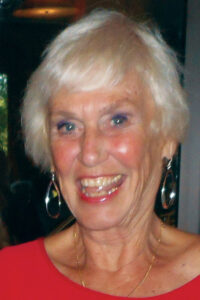By Barbara Pierce
 “He’s dead! Dave just killed himself!”
“He’s dead! Dave just killed himself!”
I could barely understand the words my niece was saying, she was so choked up.
Dave, her 46-year-old husband, had just killed himself.
I couldn’t begin to understand. How could Dave — handsome, vibrant Dave who always had a big smile, laughed easily and had such a great attitude toward life, always made us laugh with his quirky comments — have killed himself?
Whatever obstacles stood in his way, he met with his usual “Sure, I got this!” mode.
It was stunning; an unbelievable tragedy.
His suicide is part of the overwhelming amount of evidence — from deaths of despair to drug abuse, from increased numbers of men struggling with depression and anxiety to relationship difficulties that show the multitude of ways that men are floundering.
Men in the U.S. die by suicide at a rate four times higher than women, according to the CDC. Yet, men are diagnosed with depression at far lower rates. So many men just quietly disappear, consumed by video games, porn, drugs, the alt-right.
Men are struggling; they are lost. They’re in a real crisis. The world has changed so much; it’s harder to be a man today.
Dave’s death represents many things about why it’s hard to be a man.
I’ve learned Dave and his wife weren’t getting along. Though he identified her as his best friend, turns out he didn’t trust his best friend at all. He didn’t have many other friends. He started drinking more. But probably, to me anyway, the most telling thing that could have tipped him over the edge was his decision to take a leave of absence from his work. He had enjoyed his work online, for a bank. But for some reason, he decided to drop out of work for a few months.
So here’s the setup as I see it: He’s home alone day after day with nothing much to do while his wife is off leading her successful career. He doesn’t have a close friend to call and mentions he feels like pond scum. Drinks — gets loaded; loses his ability to think rationally, decides everyone would be better off without him.
And he’s gone.
Just like that.
While there are several things we all can learn from this, I’m going to focus on the fact he wasn’t working.
I think that was huge for him. He had lost his sense of purpose, the main thing that kept him anchored to the earth. There are a lot of young men out there without that sense of purpose. They’re living with their parents, doing endless video games or drugs or alt-right or other weird things that lead nowhere.
Experts say what we all need is a purpose. A purpose will make us whole.
Purpose can be explained in many ways. For some lucky people, it’s connected to our employment. If you jump out of bed in the morning, excited about what your workday will bring, then it’s likely your career is closely tied to your purpose. You’re fortunate.
Your purpose is what makes you happy! It’s what puts sizzle in your life, what you love to do. It makes you feel like who you are in the world matters. It benefits something or someone that you care about.
In short, a sense of purpose is very strongly associated with mental and physical well-being — and that’s why it is core to most scientific definitions of what it means to be happy in life.
It’s that big.
How to find your purpose:
“Finding” your purpose is a misleading concept. It’s not something you have to go out and “find,” but rather, something you need to look inside yourself and discover.
We all have skills and talents which maybe we haven’t yet discovered them. Certain flairs and abilities we’ve never taken the time to identify. Discovering your abilities, your life purpose, your ‘why’ isn’t easy. It takes time.
“I believe that purpose is something you work on. I do not believe that you will have an ‘eureka’ moment and suddenly know your purpose. Rather, you must go through a discovery process, invest time and effort to articulate the purpose you seek,” said executive coach John Ioanno online. “For me, I find purpose in my children, my spirituality, faith, my professional work, spending time with my friends, making others happy, challenging myself physically and intellectually.”
Listen to your instincts. Your purpose will always be something that you’re good at and that you care deeply about. You can’t think your way into your purpose; you have to “do” your way in. This means taking steps towards what you want and removing those things in your life that you don’t want. Stop looking and start doing.
The more you act, the more you’ll get clear on things.
 Barbara Pierce is a retired licensed clinical social worker with many years of experience helping people. If you would like to purchase a copy of her book, “When You Come to the Edge: Aging” or if you have questions for her, contact her at barbarapierce06@yahoo.com.
Barbara Pierce is a retired licensed clinical social worker with many years of experience helping people. If you would like to purchase a copy of her book, “When You Come to the Edge: Aging” or if you have questions for her, contact her at barbarapierce06@yahoo.com.
